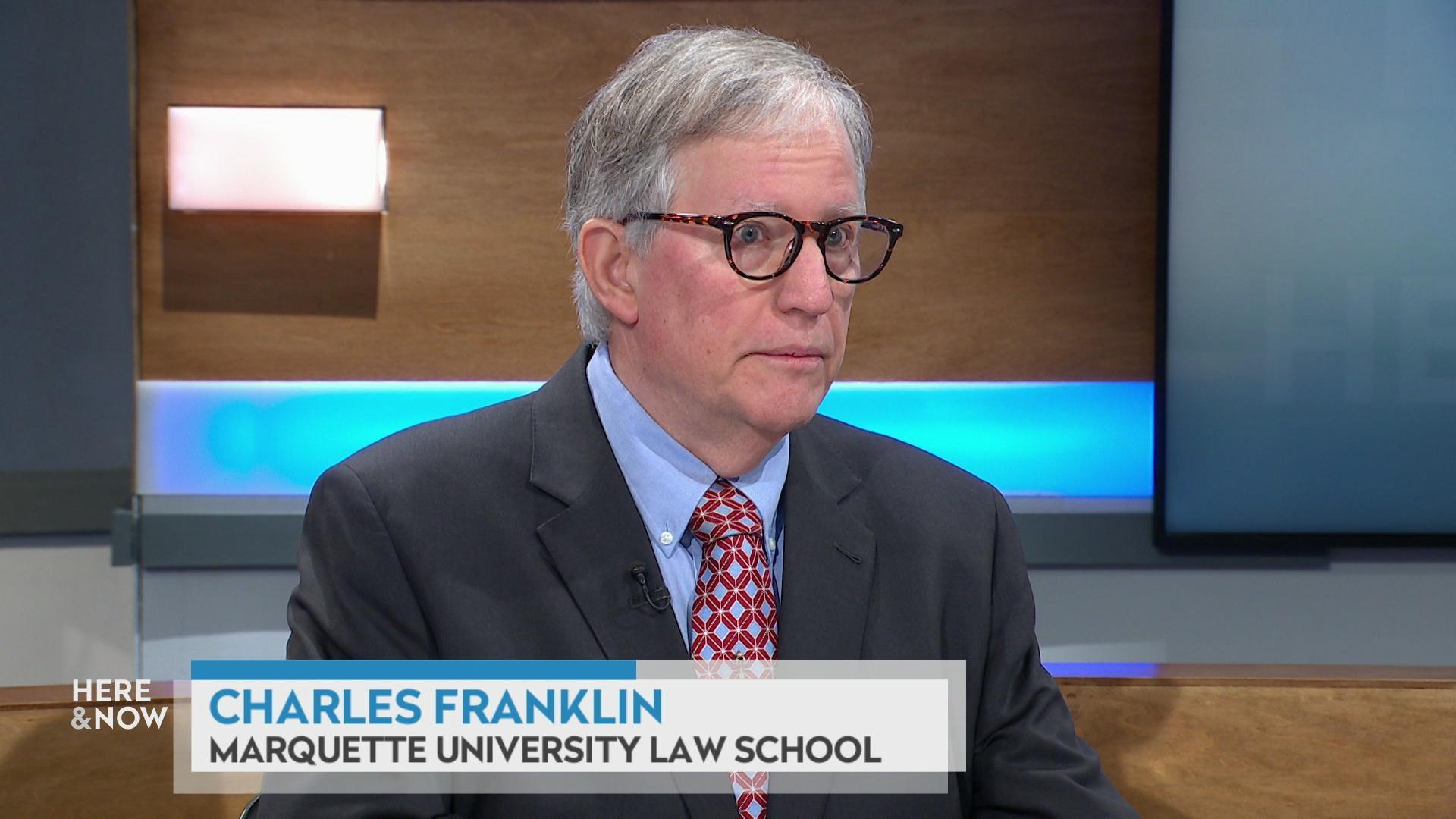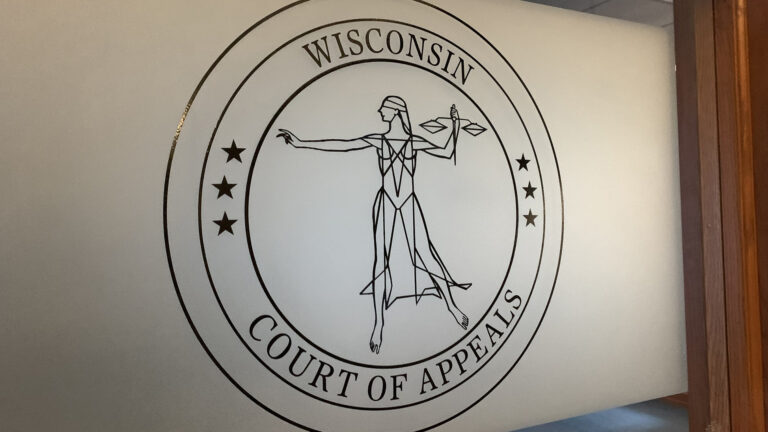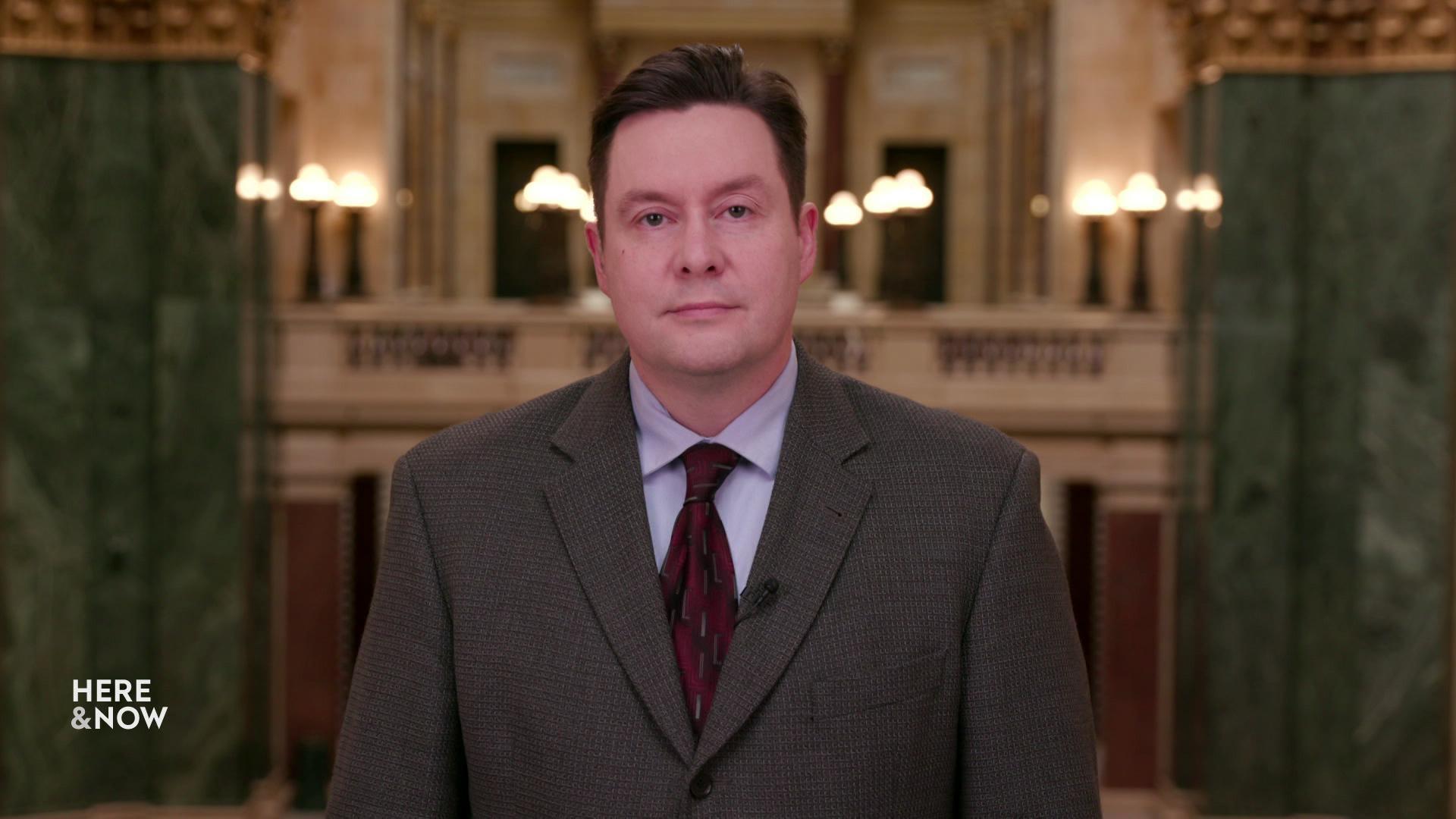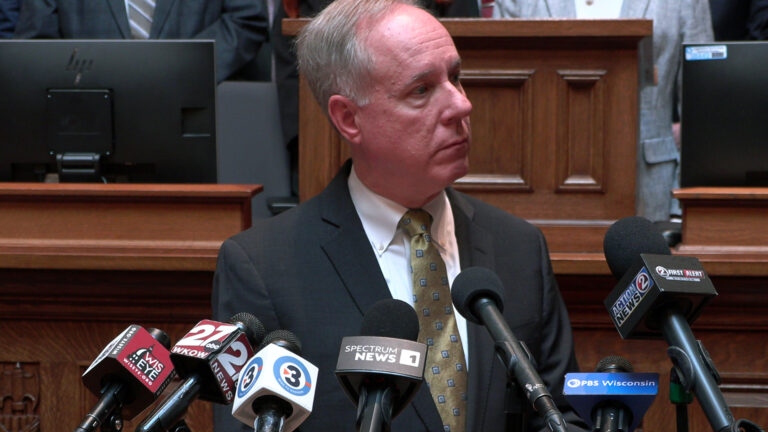Who gets to decide how federal money for Wisconsin is spent?
Voters will see two questions on the state's Aug. 13 primary ballot to amend the state constitution, both of which would shift power to direct federal funding from the governor to the Legislature.
By Steven Potter | Here & Now
August 2, 2024
Usually, only about 20% of Wisconsin’s voters cast a ballot in primary elections, like the one on Aug. 13. Voters in that election will not only choose candidates — they’ll also see two questions that will require a yes or no answer.
These two questions are about amending the state constitution and need to be approved by more than 50% of voters. Constitutional amendments approved by voters become state law, but they differ from regular bills passed by the state Legislature because the governor cannot veto them.
The two constitutional amendments on the Aug. 13 ballot specifically address how federal money given to the state of Wisconsin is spent. More specifically, they’re about who decides how federal money is spent by the state.
The most prominent example of this is the billions of dollars the federal government gave to Wisconsin related to COVID-19 relief.
Currently, the governor decides how such federal money is spent. But, Republicans want to change that law.
Like other proposed constitutional amendments, the language voters will see on the ballot is about as clear as mud.
The first question asks: “Delegation of appropriation power: Shall section 35 (1) of article IV of the constitution be created to provide that the legislature may not delegate its sole power to determine how moneys shall be appropriated?”
This first question would ensure that the state Legislature has power over appropriating money.
The second question asks: “Allocation of federal moneys: Shall section 35 (2) of article IV of the constitution be created to prohibit the governor from allocating any federal moneys the governor accepts on behalf of the state without the approval of the legislature by joint resolution or as provided by legislative rule?”
That second – and separate – question establishes the process of legislative approval before federal money can be spent.
Given the ambiguity and complexity of these amendments … legal experts say it’s possible they may be taken up in court for clarification.
Republicans want a yes vote on both questions and Democrats are urging voters to vote no on both questions.
“So to put it in the Constitution, the way that we need it, it has to be worded that way,” said state Rep. Robert Wittke, R-Racine, who is the lead author of these two constitutional amendments.
He said the Republican-controlled state Legislature saw the need for this change during the beginning of the pandemic.
“$5 billion was transferred where the governor has sole discretion over how to spend it,” said Wittke. “We don’t believe that that’s good governance — we always consider the legislative branch, whether it be the Assembly or Senate, to be closest to the people.”
Democratic Gov. Tony Evers and other Democrats in the state Legislature oppose the amendments.
“Republicans in the Legislature want to take more power for themselves,” Evers said. “The consequences of this power grab are even worse than that. If these amendments pass, me and any other future governor will be left without all the tools they need to make during and especially during times of crisis.”
Evers said Wisconsin was able to act swiftly during the early days of the pandemic because there weren’t political disagreements in the way of his allocating federal funds.
“It will cause more problems with fighting between legislators and governors than we have right now, and there’s plenty of it right now,” he said.
Wittke disagrees, and said the Legislature can work with the governor to get federal funds out the door fast. He also acknowledged that taking it directly to voters as constitutional amendments instead of a regular piece of legislation is to avoid a veto by Evers.
“I think it just shows that of the hyper-partisan nature that it’s in,” said Wittke, “you’re looking at different tools that you can use to try to make what we would think are reforms that benefit all of Wisconsin residents.”
 Passport
Passport











Follow Us